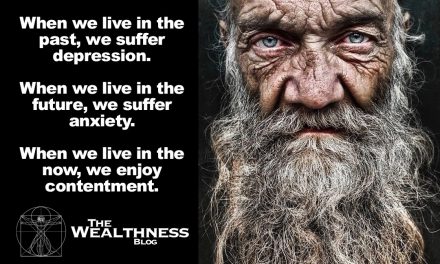This statement encapsulates a fundamental truth about human psychology and the nature of our emotional well-being. It highlights the intricate relationship between our mental focus and our emotional state, offering a simple yet powerful insight into how we can achieve greater contentment and peace in our lives.
When we dwell excessively on the past, we often find ourselves trapped in a cycle of regret, nostalgia, or unresolved pain. This backward-looking perspective can lead to depression for several reasons. Constantly replaying past events, especially negative ones, can reinforce feelings of sadness, guilt, or shame. Idealizing the past can make the present seem inadequate, leading to dissatisfaction and a sense of loss. Focusing on past mistakes or missed opportunities can create a feeling of powerlessness, as we cannot change what has already occurred. Clinging to past versions of ourselves can prevent personal growth and adaptation to current circumstances. Failing to process and move beyond past traumas can lead to chronic emotional pain and depression.
While reflection on the past can be valuable for learning and personal growth, excessive focus on what has been can rob us of the ability to fully engage with and appreciate the present moment.
Conversely, when we project ourselves too far into the future, we often experience anxiety. This forward-looking perspective can be problematic for several reasons. The future is inherently unpredictable, and fixating on potential outcomes can lead to worry and stress. Constantly anticipating future events or challenges can create a state of hypervigilance and tension. Overplanning or trying to control future outcomes can lead to frustration when things don’t go as expected. Fear of potential negative outcomes can paralyze us, preventing us from taking necessary actions in the present.
While some degree of future planning is necessary and beneficial, becoming overly focused on what might be can prevent us from fully experiencing and appreciating what is.
Living in the now, or practicing mindfulness, offers a path to contentment. When we focus on the present moment, we engage fully with our current experiences, thoughts, and feelings. This present-focused state allows us to appreciate the small joys and beauty in everyday life. It helps us respond more effectively to current challenges rather than worrying about past or future ones. Mindfulness can reduce stress by keeping our attention on what we can control in the present moment. It enhances our relationships by allowing us to be fully present with others. Living in the now also fosters a sense of gratitude for what we have, rather than longing for what was or what might be.
However, achieving this state of present-focused living is not always easy. Our minds naturally tend to wander to the past or future. Societal pressures often encourage us to focus on future goals or dwell on past experiences. Additionally, certain life circumstances, such as trauma or significant life changes, can make it challenging to stay grounded in the present.
Cultivating the ability to live in the now requires practice and patience. Mindfulness meditation is one powerful tool for developing this skill. Regular practice can help train our minds to return to the present moment when they wander. Other techniques, such as deep breathing exercises, body scans, or simply taking moments throughout the day to pause and observe our surroundings, can also help foster a more present-focused mindset.
It’s important to note that living in the now doesn’t mean completely ignoring the past or future. Rather, it involves finding a balance where we can learn from the past and plan for the future without becoming overly attached to either. We can reflect on past experiences to gain insights and make better decisions in the present. Similarly, we can set goals and make plans for the future while remaining grounded in current realities.
The concept of living in the now aligns with many philosophical and spiritual traditions, from Buddhism to Stoicism. These traditions have long recognized the importance of present-moment awareness for achieving peace and contentment. Modern psychology, too, has increasingly recognized the benefits of mindfulness and present-focused living for mental health and well-being.
Ultimately, the path to contentment lies in finding a balance between honoring our past, preparing for our future, and fully engaging with our present. By cultivating awareness of where our thoughts tend to dwell and gently guiding them back to the present when they wander, we can reduce the suffering associated with depression and anxiety and increase our capacity for joy, peace, and contentment.
Living in the now is not about achieving a perfect state of constant present awareness. Rather, it’s about developing the skill to recognize when we’re dwelling in the past or future and the ability to bring ourselves back to the present moment. It’s a lifelong practice that can profoundly transform our experience of life, leading to greater emotional resilience, deeper relationships, and a more profound sense of fulfillment and contentment.











